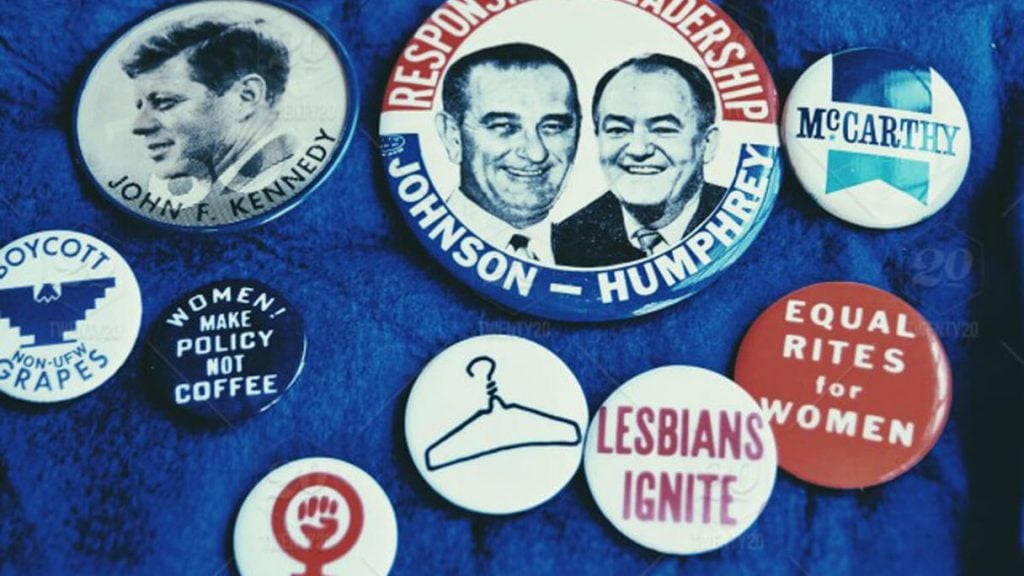
Photo Courtesy of Alan Heeks
By Alan Heeks | Next Avenue
Of all the extraordinary years that make up the 1960s, I’ve long believed that 1968 was the most remarkable and quintessential. The 50th anniversary of ’68 is a good time to consider those days, and how they can inspire us today.
In 1968, I was 19, in my second year at college, so it was a vivid time for me in all ways. What I still recall feeling back then was that 1968 was the best of times and the worst of times, to extremes rarely seen. And the historical facts of the year confirm this paradox. Here are a few of them:
- January: Tet offensive and major escalation of Vietnam War
- April: Martin Luther King Jr. assassinated
- May: French students and workers combine in protests which almost topple the government
- June: Robert Kennedy assassinated
- August: Soviet invasion to crush Czechoslovakia’s liberal regime
- August: Chicago police brutally attack demonstrators outside the Democrat convention
- November: Richard Nixon wins presidential election to succeed Lyndon Johnson
For a while in 1968, anything looked possible including popular freedom sweeping out political establishments, international brotherhood and sisterhood and the convergence of pop music with social activism.
The 1960s: We Didn’t Dream in Vain
Looking back, you might think these were flimsy, hippie dreams that were killed off in Paris, Prague, and Chicago. I believe there were deep, widely-held ideals whose early buds got frozen out in ’68, but which started changes that have borne fruit on a large scale in the years since.
Recently, I’ve been reading histories of the ’60s, which confirm my sense that your take on the decade depends heavily on the viewpoint you choose. There was huge progress on many fronts: for example, sweeping away outdated laws, new affluence, sexual and personal freedom. But it was an era of failed dreams, too. One of the big missed opportunities was the response to the publication of Silent Spring by Rachel Carson in 1962: while the groundbreaking environmental book was a wake-up call for some, it deserved a bigger reaction. If governments had acted decisively then, the chronic issues we face today around pollution and climate change could be far less severe.
Recovering Hope
So what can we learn from the spirit of the Sixties that might help all of us today? It’s important to remember that alongside the swinging, liberating sides of that decade, we lived with big fears and horrors.
 The Cuba missile crisis of 1962 was probably the closest the world has come to a nuclear war, and we had to live with that overhanging possibility. The barbarity of the Vietnam war, Russian invasions and assassinations burst at you from TV screens. Yet the feel of those times was different from now. Here are my guesses at what we can learn for our current situation:
The Cuba missile crisis of 1962 was probably the closest the world has come to a nuclear war, and we had to live with that overhanging possibility. The barbarity of the Vietnam war, Russian invasions and assassinations burst at you from TV screens. Yet the feel of those times was different from now. Here are my guesses at what we can learn for our current situation:
I Feel Free: There was an underlying sense of potential for positive change, for individuals and societies. This is harder to feel now, yet we desperately need it. Processes like deep ecology and positive psychology can help us recover our hope.
Get Up, Stand Up: A major feature of the Sixties was protest demonstrations, large-scale and repeated. We have sometimes seen them since, recently over gun control. In 2018, you can probably name a dozen issues that stir your passion — but there’s alarmingly little collective action.
I Can See Clearly Now: In the Sixties, the problems and possibilities were both being faced up to by many more people. It’s probably true that the issues of today are more numerous and complex, but the extent of avoidance and denial in today’s society is alarming.
Dancing in the Streets: One of the exciting flavors of the Sixties was a sense of brotherhood and sisterhood, a trust that you could reach out to others and find shared joy, shared protest and collective possibilities. One of my current projects, Seeding our Future, explores future challenges and how we can grow through them: localization, face-to-face contacts and community all look crucial for this.
Respect: Remember that Aretha Franklin song? The ways that the music of the Sixties not only expressed, but actually shaped those times, and voiced and animated the passion for a change, were exceptional. Think of Dylan, Jefferson Airplane, Country Joe, The Who, The Stones and more. Surely music and media could express our hopes and spark us into action again?
Where Are The Elders?
The question of what we can learn from the 1960s is a useful one for all age groups, but especially for the boomers. Members of this generation are numerous, relatively healthy and affluent, and would be a real force for positive change if they could be mobilized.
I’ve been pondering this deeply for my recently published book, Not Fade Away: Staying Happy When You’re Over 64 which is a guide to creative aging for this generation. The boomers don’t really have a role or a voice in our society, but potentially they could be the elders that society lacks.
The term “elder” is used with various meanings: I’m using it to describe the mature wisdom of the older generation, and in our ancestors. Traditional tribal cultures, such as the Native Americans, Celts, and Bedouin, had great wisdom, including the role of the elders.
We often think of tribes as led by one chief, but often the elders as a group had a powerful role. It was their role to guide the tribe in a crisis, to dream dreams, uphold values and mentor the young. Clearly we live in a different kind of society than this, but the role of the elders is something we can learn from and update. And recapturing the spirit of the Sixties is a gift that the elders of today could embody.
![]() This article originally appeared on Next Avenue
This article originally appeared on Next Avenue
© Twin Cities Public Television - 2018. All rights reserved.
Read Next



